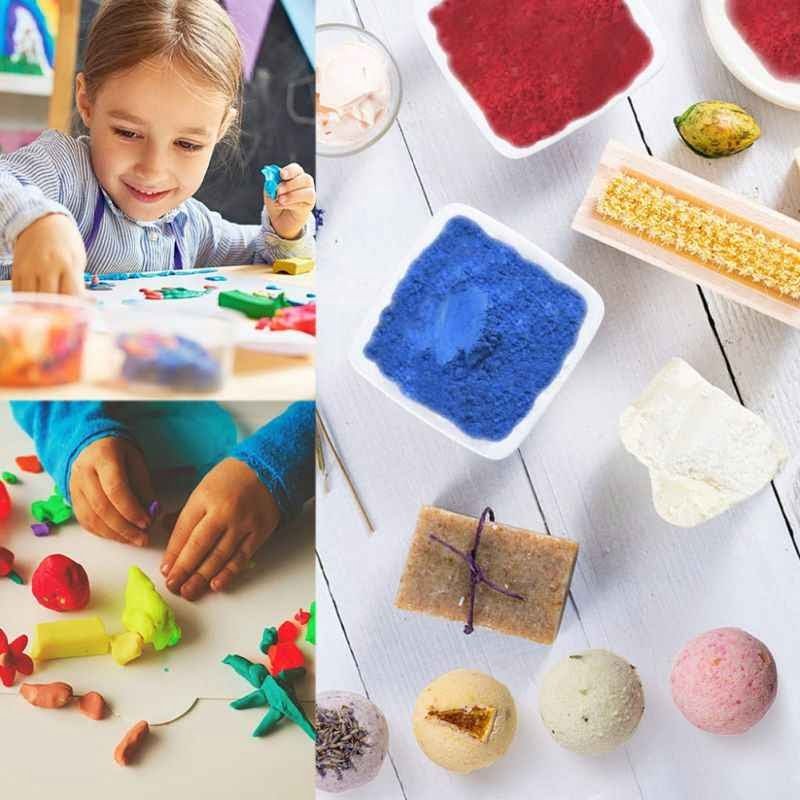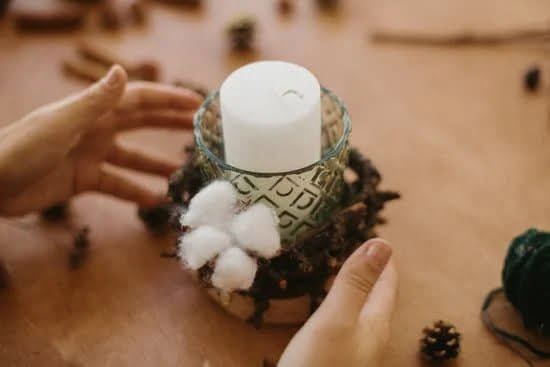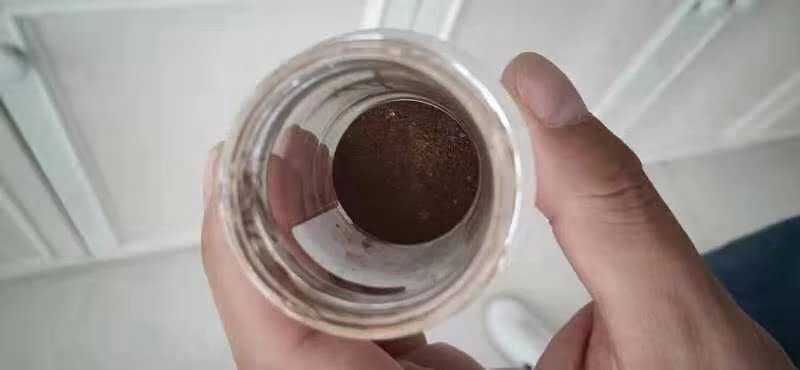Introduction
Making candles in a glass is an enjoyable and rewarding activity. It will give you a sense of accomplishment and it can even be a great way to create unique gifts for friends and family. By making your own candles, you can decide exactly what color, scent and size you want, as well as pick out fun decorations for it. Additionally, by using recyclable materials such as old wine bottles or mason jars, you are doing something environmentally friendly too. The process involves melting wax, adding scent and dye to the liquid wax, pouring the wax into the containers of your choice, waiting until the wax hardens, then placing them on your mantlepiece or giving them away as presents! Lastly, when finished – you are left with attractive homemade candles in stylish glass bowls that will be sure to make your home stand out!
Materials Needed
To make candles in a glass, you will need the following materials: candle wax, scissors, metal containers for melting the wax, a jar or glass container with a lid to hold the finished candle, wick tabs and wick, thermometer (for checking the melting point of the wax), stirring sticks and safety goggles. You will also need some type of fragrance oils or essential oils to scent your candle to your preference. If desired, you may also want to use some type of colorants such as dye blocks or powdered dyes to add extra visual flair to your creation. Additionally, make sure you have an area set up for working which includes newspapers or old sheets to work on. This way you can easily contain any mess that may come about during the process. Last but not least, always wear protective gear such as gloves and long pants when handling hot liquid wax!
The Steps
1. Gather all necessary supplies. Before you start making candles in a glass, you’ll need to ensure that you have the appropriate materials including paraffin wax, wicks, wax dyes (optional), hot glue gun, glass of choice and double boiler.
2. Set-up the double boiler for melting the wax. A double boiler is essentially two pots: one pot sits inside another larger pot that contains water. The upper part of the boiler is used for melting paraffin. Fill up the lower part of the boiler with enough water so it goes halfway through the upper part and set it on medium-to-high heat.
3. Begin melting your paraffin wax in the double boiler above a low light (never leave unattended). Use other materials to stir and monitor temperature levels as needed until melted completely and uniform in color throughout.
4. Optionally add aromatic scents or wax dyes to enhance your candle’s aroma and flavor (also required if using multiple colors). Blend with exisiting molten wax if necessary until everything is mixed perfectly before proceeding any further with crafting your candles.
5. Once at desired consistency and temperature, begin pouring hot liquid into prepared glass containers while ensuring an organized pour pattern so as not to create air bubbles when cooling later on down the line.
6. When close to finished, place pre-cut wick inside middle of each jar or container before additional wax solidifies too much – use either metal clip/holder or hot glue gun depending upon style of container being used; this will help keep things even on both sides while adding some stability overall once fully cooled off after awhile upon completion/hardening period afterwards in its entirety!
The Candle Types
Candles are one of the most popular home decor pieces and can be easily made in a glass. Candles come in a variety of shapes, sizes, and styles that you can use to create unique effects in any room. The three primary types of candles used for making candles in a glass include: tapers, votives, and container candles.
Taper candles are typically long, thin wicks that burn slowly and give off a beautiful ambiance when surrounded by glass. These specialty lights are generally used in non-standard candle holders or base plates as they have larger bases than votive or container candles. Votive candles tend to be smaller than tapers and feature two or more wicks to provide an even flow of light across the surface of the glass container it is placed in. In addition, the small wax cup at the top helps these lights remain upright without spilling wax on other surfaces. Container candles come with their own individual wax holders which act as a protective barrier between your glass holder and the flame itself. These designs often feature intricate patterns along with scented oils that will add an aromatic element to your candle-lit atmosphere.
The Embellishments
Making candles in a glass is a popular craft that has been around for centuries. Not only can you make beautiful and unique decorative pieces, but the projects themselves can prove to be an ideal way to express creativity and showcase your unique style. There are several aspects of making candles that can be embellished and accessorized with creative ideas.
One way to add a personal touch is to decorate the outside of the glass container with paints or gems. A layer of paint on the outside of the container can provide either a subtle background colour or bright and striking accent colors depending on what one is looking for. Gemstones, shells, beads, sand, and other materials can be arranged around the base of the container which will give it more sparkle and depth than simple paint alone. Another way one could spruce up their candle creation is by adding interesting trinkets such as ribbons, charms, jewelry pieces, dried flowers, lace fabric or even aromatic herbs or spices inside their candle before pouring in the melted wax mixture. Once this part is finished it’s time to startaccessorizing with an array of wicks, stands, fixtures and holders. These all help create balance while adding different looks which will be sure to set each creation apart from others out there! Ultimately candle making in a glass is one project where almost anything goes!
Safety Tips
When making candles in a glass container, there are a few safety tips to bear in mind. First and foremost, ensure that you have adequate ventilation and safety equipment nearby. Wear appropriate heat-safe clothing such as long pants, long sleeves, and eye protection. Place the container on top of a stable surface that is away from anything flammable. Have an extinguishing agent close by in case of any accidental fires.
Before handling your wax, make sure it is heated carefully to the proper melting point; this will help minimize the risks of burns or spills. Have a bucket or bowl of cool water nearby in case of emergency. Never leave your hot wax unattended; always keep an eye on it while it’s being melted over an open flame. Additionally, it is important to keep all combustible material away from any open flames; this includes cardboard boxes or paper towels. Lastly, avoid wick length and wick size adjustments while the wax is still hot to reduce the risk of injury or fire hazard.
Alternatives
Some alternatives to candles in a glass include using LED tealights and wax melts placed in glass jars. LED tealights are flameless, battery-operated candles that come in various sizes and colors, while wax melts are blocks of scented wax that provide a pleasantly aromatic atmosphere when heated. Another option is to use small electric lamps or lanterns with colored lightbulbs inside glass vases or jars. You could also experiment with putting water and food coloring in the jars with glow sticks set in them for an ethereal effect. String lights are also a great option for creating an ambient ambiance – try winding these through clear mason jars for a soft, subtle look.
Conclusion
Making candles in a glass has several advantages both aesthetically and functionally. The most obvious advantage is that using glass containers allows for the finished product to be displayed and admired as it serves its purpose of illuminating a room. Another excellent benefit to making candles in a glass is the flexibility of being able to use various waxes such as soy, paraffin, beeswax, and melting mixtures, depending on the desired result. Additionally, when combined with unique wicks, different fragrances (essential or artifical), and attractive embellishments like dried flowers or beads, the memories created from these homemade creations will be enjoyed for years to come. With relatively simple steps including measuring wax temperatures with a thermometer and pouring melted wax into containers using ladles or spoons all within easy-to-follow instructions, candle makers can find success creating beautiful projects with these simple supplies that add beauty and comfort to their homes.

Welcome to my candle making blog! In this blog, I will be sharing my tips and tricks for making candles. I will also be sharing some of my favorite recipes.





